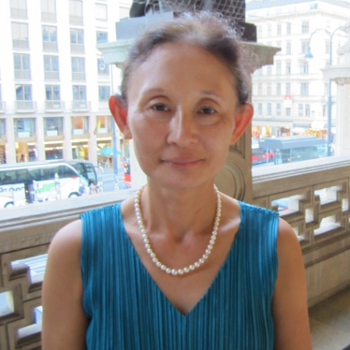What a pleasant surprise and relief to listen to the entire Act 1 Prelude to Die Meistersinger in front of a closed curtain! With no distracting stage business, it was refreshing to savour every minute dynamic shift and counterpoint played with brilliance and exhilaration by the Orchestra of Deutsche Oper Berlin under the baton of Markus Stenz, who stepped in at short notice for Sir Donald Runnicles. The curtain opens to a room in a music school, with white floors and wooden walls, with some students milling about. It was a stroke of genius to place the chorus in upper level boxes in the auditorium for the hymns, as well as brass and percussion in Act 3, to heighten our sonic and communal experience. Despite some uncoordinated moments between the orchestra and chorus as well as occasional inelegant notes from the pit, this was a commendable effort to create and deliver a thrilling musical performance of Wagner’s only comedy.
Johan Reuter’s light bass-baritone had the requisite strength and stamina to essay arguably the longest male role in opera, Hans Sachs. One might wish for a bit more authority and charisma in his interpretation, but he may have been hampered by the silly directorial choice to portray Sachs not as a shoemaker, but as a teacher and music therapist obsessed with yoga and foot massage. His mission seems to give all students and faculty of the school a pair of crocs.
After more than 15 years of singing Walther, Klaus Florian Vogt’s clarion tenor has lost none of its beauty and brilliance. It has acquired more power and depth, and there is now an apparent ease in his rise to the heights of the demanding stanzas of the Prize Song. Sporting a ponytail and wisps of beard and moustache, Walther here is an outsider of unspecified occupation, whose sole accomplishment in the opera is seducing Eva and eloping with her. Eva defies her father’s wish to be offered as a prize to a master singer, spurns her old lover Hans Sachs and chooses Walther as her way out of the sexualised power struggle within the school. Heidi Stober dealt with the physical demands of singing Eva, such as being entangled on the floor with Sachs, rather well with her slender but pliant, clear soprano.
Perhaps the highest honour of singing while acting in challenging direction should go to young tenor Ya-Chung Huang as David, who often sang in a single leg stand yoga pose. Philipp Jekal as Beckmesser shares that honour as he was saddled with two walking sticks after his assault at the end of Act 2. These two youngsters, both ensemble members, valiantly rose to the challenge with committed singing. Annika Schlicht’s Magdalena impressed with her rich chest voice, but her character remains puzzling; a sexually repressed spinster, or seductress of the young David? As Pogner, Albert Pesendorfer was rather gruff but his strong voice asserted the character’s dominant position as director of the school.
The production team of Jossi Weiler, Anna Viebrock and Sergio Morabito was inspired by films and other sources to create a closed and oppressive music school where academic and sexual abuse may be rampant, with Sachs as a unique and popular teacher. The initial concept may be sound, but it is not always carried out with consistency. Staging is often awkward, with repeated use of chairs being arranged and rearranged as the room is reset. Beckmesser accompanies his Act 3 song on the piano while his harp is heard in the background. Most problematic is the blocking of soloists, who are often forced to sing towards the back of the stage, making them less visible and audible to the audience.
The production takes a dark turn towards the end of Act 3, when the electric clock is turned back to indicate the political scandal of the past, with Sachs emerging as a hailed leader of the youth. The staging of the room was said to be inspired by a photo of the Munich Music School in the 1930s as the representative of the Nazi era, so this Meistersinger does hark back to the question of the role of music and art in its political and historical context. However, the sudden darkening of the stage with nightmarish movements of chorus members jars at this point and is not an effective execution of the plot. It might have been more convincing to present the music school as a place of oppression and abuse, without necessarily referring to the Nazi connection, and use the figures of Sachs and Walther as its reformers. This new production is, at best, a great showcase for its performers, including the young ensemble members, with the production team’s concept remaining muddled and awkward.




